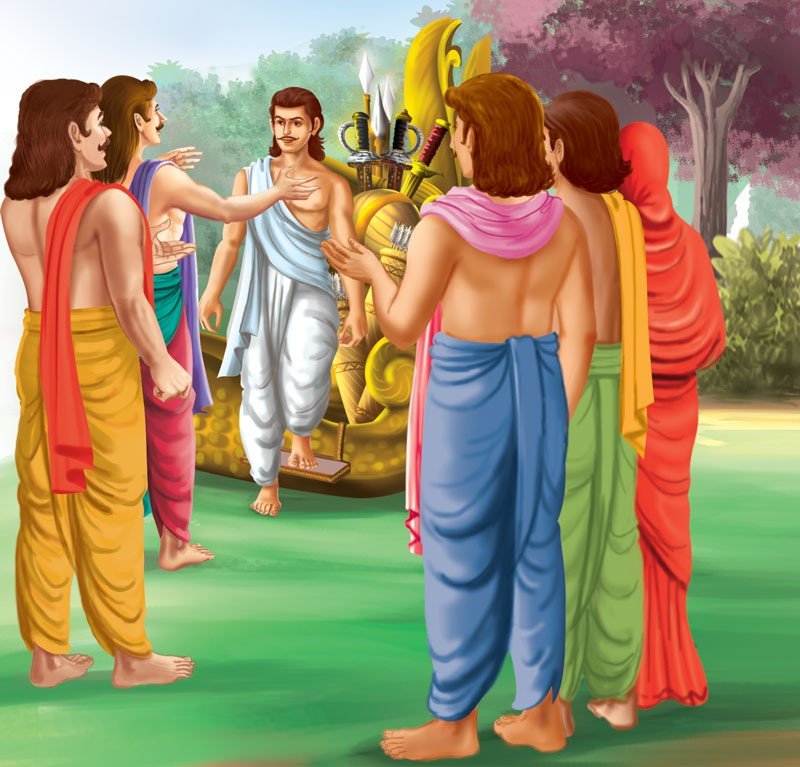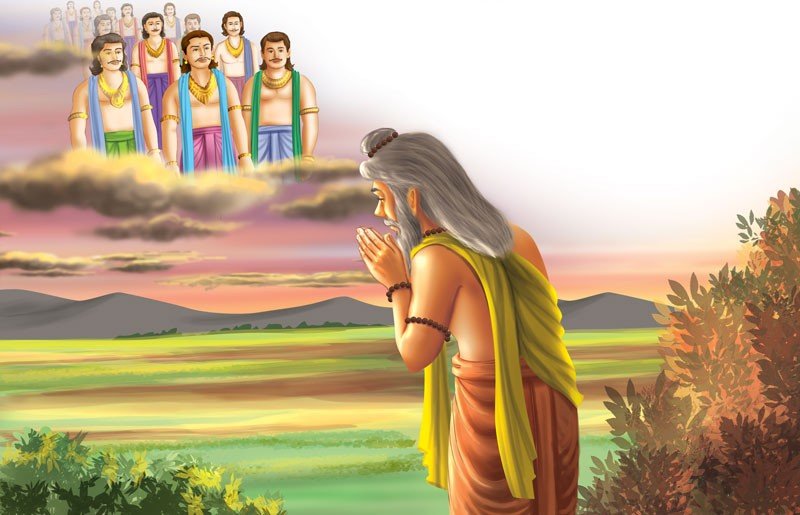It was unbearable for all the Pandavas to live in separation from one another. In absence of Arjuna they visited various pilgrim sites with sages Lomasha and Dhaumya. Both the sages told them the stories about the other saints and sages, kings, demons, etc. to boost their courage and patience.
One of such stories was related to the hermitage of sage Agastya. One day, sage Agastya saw some of the spirits of his ancestors hanging upside down. They said that they would all be set free from life and death if he would marry and have children. Meanwhile king of Vidarbha came to seek sage Agastya’s blessings in order to have a child. The sage said that he would be blessed with a daughter. He further stated that the king’s daughter had to marry him (sage Agastya). The king’s daughter, Lopamudra, grew up, married Sage Agastya and went to live in the forest with him. Lopamudra wanted a family, but they were too poor to look after children. Sage Agastya began to look around for a way to earn some income. The sage reached a demon named Ilwala. The demon gave the sage the wealth he demanded. Thereafter, the sage was blessed with a son named Dridhasyu. The place where sage Agastya lived became famous as a pilgrim site called ‘Agast yashram.’ Splendour was restored to Parashurama after he had bathed there. “O Yudhishthira! Bathe here to have your lost glory restored to you.” All the four brothers with Draupadi took holy dips there and worshipped with great devotion.

One day, the Pandavas and Draupadi were carrying on with their normal duties in the forest ashrama where they lived. Suddenly, they saw Indra’s chariot descending from the sky and landing outside the ashrama. They were all delighted to see Arjuna seated in it. Arjuna had brought with him all the weapons he had received. He met his brothers with great respect and affection. He was warmly welcomed by Draupadi.
Just then, sage Narada came there. All of them accorded him due respect. Arjuna told the sage about the divine weapons. The sage told them that all the weapons must be used with great reasoning. There must be some faithful cause behind using them.

